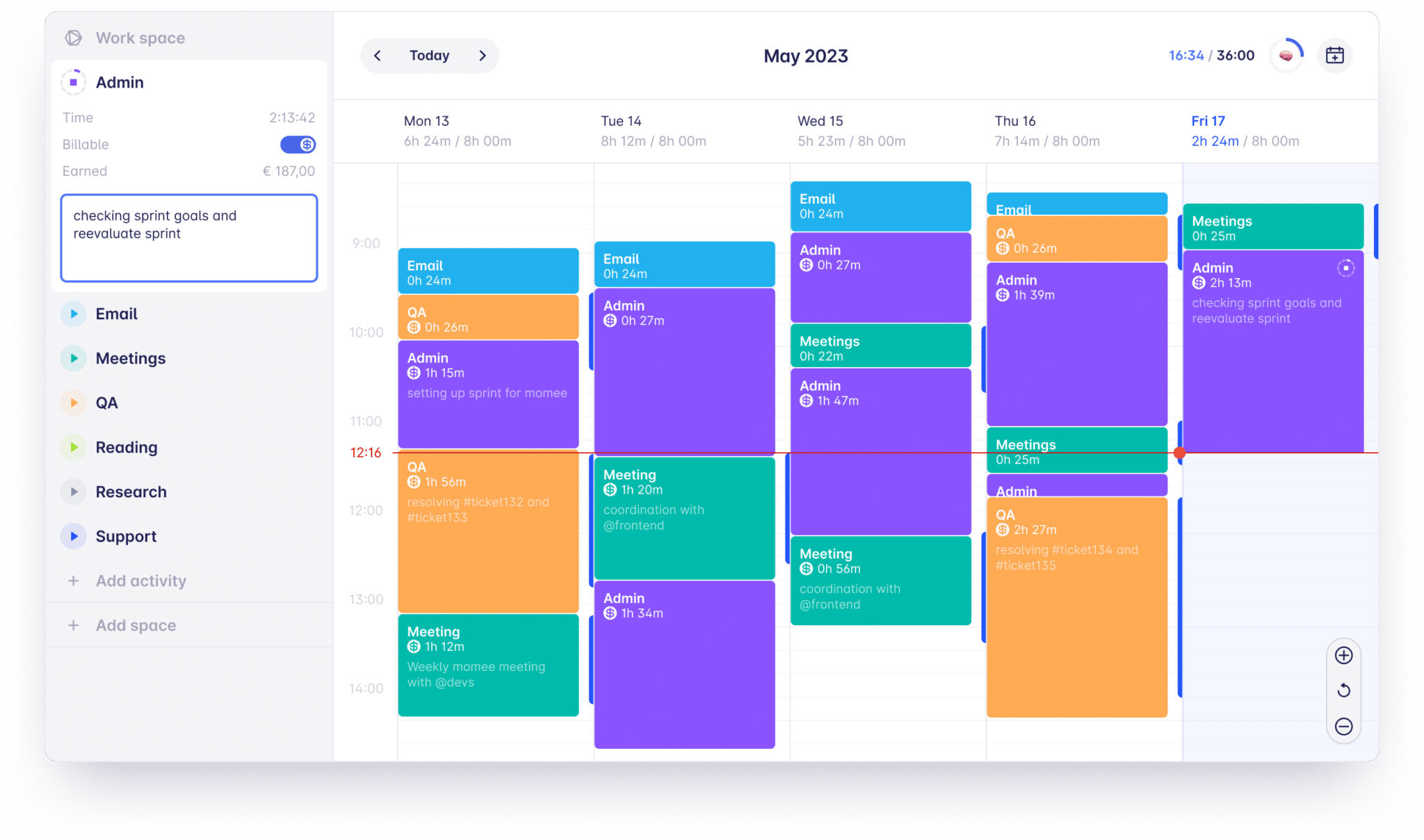Success story
How a software house tracks time against estimations to improve accuracy

CodeFlügel is a B2B software development agency focused on augmented reality and artificial intelligence as well as web and app development. Claus Degendorfer is the CEO of CodeFlügel and he and the team have been using Timeular since inception.
The challenge: finding a way to instantly track time to close the discrepancy between estimations and actual time taken
Before the team started using Timeular, they noticed that there were big differences between their initial estimations and the time that the task ended up taking. For Claus and the team, it’s important to be able to calculate time on an hourly basis and have accurate estimations.
Before implementing Timeular, the team was tracking time in chunks of 15, 30, and 45 minutes. No one was tracking as they went along and most kept notes on a sticky note and loosely logged their time at the end of the day when thinking back over their tasks.
The team has a CMS system where they book their working times against projects and use JIRA for project management on a task basis. They needed to find a solution to somehow connect the two systems as both contained crucial information, all while making time tracking an effortless and convenient task that motivated the team to create instant time entries.
Read also: The best Jira time tracking integration.
The solution: integrating JIRA with Timeular to optimize accuracy
The team tracks their billable time and reviews the insights on a daily basis. By looking at the overview of the tasks that were created the day before, they can compare the estimations with how long the tasks took.
By connecting Timeular to Jira, the CodeFlügel team can use the time tracking functionality to directly assign work logs to a specific JIRA issue. The tasks are filled with the actual real-time entries from the developers. Part of the process is automated so that it’s easier for the developers and the data is more accurate.
The team then uses dashboards and lists in JIRA to manage their work-logs as well as see the plan and actual time taken.
“We can learn from estimations vs the time that was actually needed on a project. With this information we can then optimise the process.”
The result: understanding where the time goes and being more accurate with estimations
Thanks to Timeular, CodeFlügel has a much better understanding of where their time goes and their estimations are much more accurate. The team have built the habit of tracking all of their time which has resulted in more billable hours.
Another benefit is, that at the end of the day, the developers know exactly what time they spend on which task and can book it into the CMS system accordingly.
Start tracking with ease
Increase profitability and bill accurately with effortless time tracking. Never chase a timesheet again.

